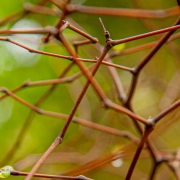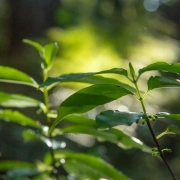A GROUP of Britain’s leading doctors has urged every NHS trust to stop paying for alternative medicine and to use the money for conventional treatments.
Their appeal is a direct challenge to the Prince of Wales’s outspoken campaign to widen access to complementary therapies.
The organiser Michael Baum, Emeritus Professor of Surgery at University College London said that he was happy for the National Health Service to offer the treatments once research has proven them effective, such as acupuncture for pain relief.
Public funding of “unproven or disproved treatments” such as homoeopathy and reflexology, which are promoted by the Prince, is unacceptable while huge NHS deficits are forcing trusts to sack nurses and limit access to life-saving drugs, the doctors say.
The 13 scientists, who include some of the most eminent names in British medicine, have written to the chief executives of all 476 acute and primary care trusts to demand that only evidence-based therapies are provided free to patients.
Their letter, seen by The Times, has been sent as the Prince today steps up his crusade for increased provision of alternative treatments with a controversial speech to the World Health Organisation assembly in Geneva.
Prince gets crystal therapy lesson
The Prince, who was yesterday given a lesson in crystal therapy while touring a complementary health unit in Merthyr Tydfil, will ask the WHO to embrace alternative therapies in the fight against serious disease. His views have outraged clinicians and researchers, who claim that many of the therapies that he advocates have been shown to be ineffective in trials or have never been properly tested.
The letter criticises two of his flagship initiatives on complementary medicine: a government-funded patient guide prepared by his Foundation for Integrated Medicine, and the Smallwood report last year, which he commissioned to make a financial case for increasing NHS provision.
Both documents, it is claimed, give misleading information about scientific support for therapies such as homoeopathy, described as “an implausible treatment for which over a dozen systematic reviews have failed to produce convincing evidence of effectiveness”.
The letter’s signatories include Sir James Black, who won the Nobel Prize for Medicine in 1988, and Sir Keith Peters, president of the Academy of Medical Science, which represents Britain’s leading clinical researchers.
It was organised by Michael Baum, Emeritus Professor of Surgery at University College London, and other supporters include six Fellows of the Royal Society, Britain’s national academy of science, and Professor Edzard Ernst, of the Peninsula Medical School in Exeter, who holds the UK’s first chair in complementary medicine.
The doctors ask trust chief executives to review their policies so that patients are given accurate information, and not to waste scarce resources on therapies that have not been shown to work by rigorous clinical trials.
They conclude: “At a time when the NHS is under intense pressure, patients, the public and the NHS are best served by using the available funds for treatments that are based on solid evidence.”
Professor Baum, a cancer specialist, said that he had organised the letter because of his “utter despair” at growing NHS acceptance of alternative treatments while drugs of proven effectiveness are being withheld. “At a time when we are struggling to gain access for our patients to Herceptin, which is absolutely proven to extend survival in breast cancer, I find it appalling that the NHS should be funding a therapy like homoeopathy that is utterly bogus,” he said.
He said that he was happy for the NHS to offer the treatments once research has proven them effective, such as acupuncture for pain relief, but that very few had reached the required standards.
“If people want to spend their own money on it, fine, but it shouldn’t be NHS money.”
The Department of Health does not keep figures on the total NHS spending on alternative medicine, but Britain’s total market is estimated at £1.6 billion.

